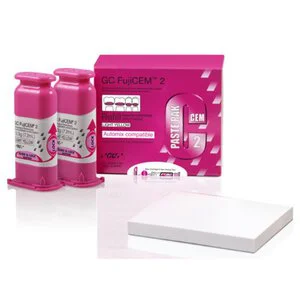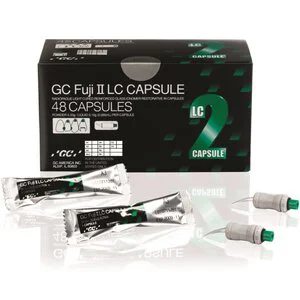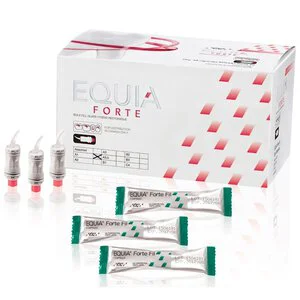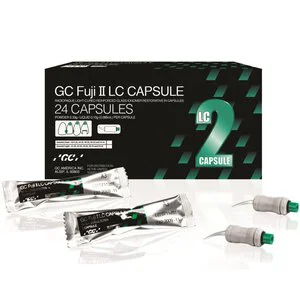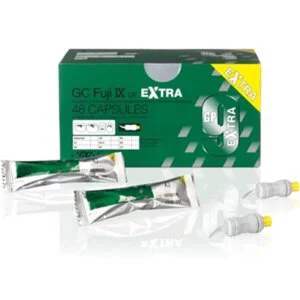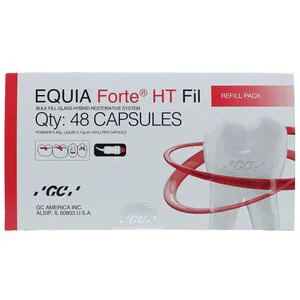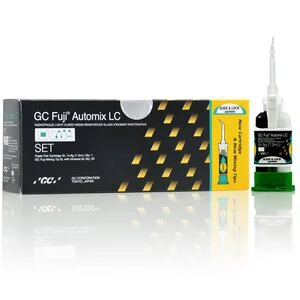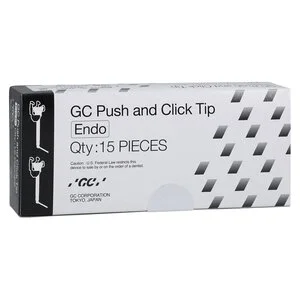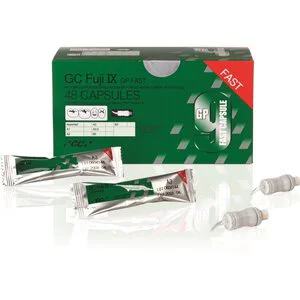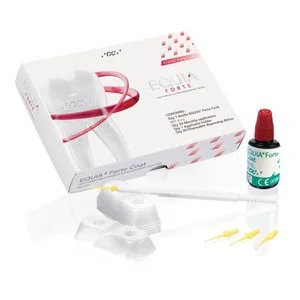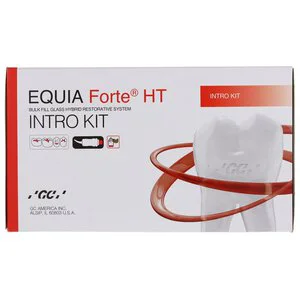Filter Products
Filter Products
Glass Ionomers
As low as
$306.54As low as
$207.38As low as
$339.49As low as
$282.56As low as
$148.69As low as
$211.26As low as
$282.44As low as
$219.31What is a glass ionomer used for?
Glass ionomers serve multiple purposes in dentistry, including:
- Dental professionals widely employ glass ionomers to restore decayed teeth, providing a durable and aesthetically pleasing solution. Its ability to chemically bond to tooth structure enhances its longevity and reduces the risk of restoration failure.
- In restorative dentistry, glass ionomers are an effective luting agent for cementing crowns, bridges, and orthodontic bands. Its adhesive properties contribute to these prosthetic applications' stability and long-term success.
- The flowable nature of glass ionomer makes it well-suited for sealing pits and fissures on occlusal surfaces. This preventive application helps protect against decay in vulnerable areas of the teeth.
- Glass ionomers are employed in core build-ups for teeth that are structurally compromised, providing a stable foundation for subsequent restorations. Its ability to integrate with existing tooth structures supports conservative treatment approaches.
- Glass ionomers are particularly effective in restoring Class V lesions and addressing gingival (cervical) lesions and abrasions. Its biocompatibility and ability to adapt to the tooth surface make it suitable for restorations in this anatomically challenging area.
What is the role of glass ionomer in minimally invasive dentistry?
Glass ionomers play a pivotal role in minimally invasive dentistry by conserving tooth structure and promoting conservative treatment approaches. Its adhesive properties allow for minimal removal of healthy tooth structure during preparation, contributing to the preservation of natural dentition. By creating a strong seal, glass ionomers reduce the risk of microleakage and secondary caries, enhancing the longevity of restorations. This characteristic makes it particularly valuable in restorative procedures where preserving healthy tooth structure is essential. Additionally, glass ionomers are adaptable for various applications such as pit and fissure sealants and core build-ups, further supporting their role in minimally invasive and patient-friendly dental practices.
What are the key advantages of using dental glass ionomers in restorative dentistry?
Glass ionomers offer numerous advantages in restorative dentistry, including:
- Versatility: Glass ionomers can be used for restorative and preventive dental procedures.
- Chemical Adhesion: It forms a strong bond with tooth structure, providing stability and longevity.
- Fluoride Release: Glass ionomers release fluoride, aiding in remineralization and preventing tooth decay.
- Biocompatibility: Its composition is well-tolerated by oral tissues, minimizing the risk of adverse reactions.
- Esthetics: Some formulations provide improved esthetics, making them suitable for visible tooth surfaces.
Can glass ionomers be used for both deciduous and permanent teeth?
Yes, glass ionomers are a versatile dental material suitable for deciduous (baby) and permanent teeth. Its adaptability makes it an excellent choice for various restorative and preventive applications.

